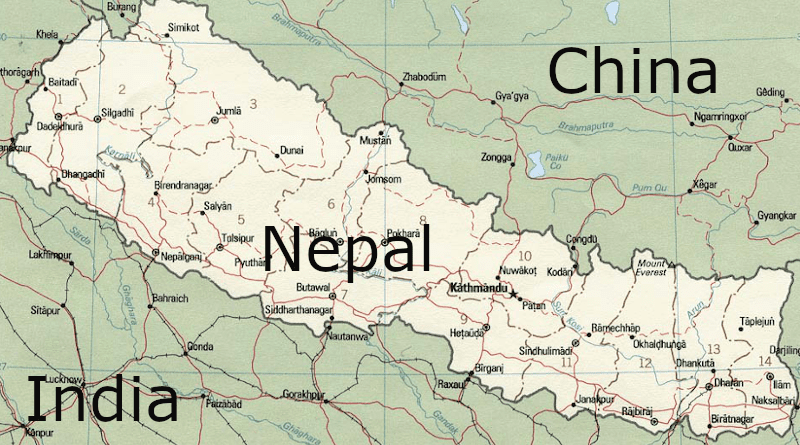The Debate Of Ethnic Federalism In Nepal – OpEd
After the idea of federalism sneaked into Nepal, the reactions were arbitrary. The streets were burning with protests. The country was paralysed with fear and hope at the same time. Ethnic minorities found a new voice to rebel against their centuries-long oppression. Political parties were confused whether to take the idea on board or go against it. Spark sof racial enmity surfaced in many parts of the country. Why did the proposal of Federalism shake the country?
Talking about the political volatility, New York Times published an article about Nepal in June this year. The article written by Seyom Brown and Vanda Felbab-Brown entitled ‘Nepal, on the brink of Collapse’ concentrated on the current political debate. It fanned a wave of anger amongst the Nepalese community and the Nepalese Diaspora. Dr. Seyom Brown is the Lawrence A.Wien professor at Brandeis University. He has held numerous research and policy analysts positions. The other author Dr. Vanda Felbab Brown is a think-tank associated with Georgetown University. When two brilliant researchers criticize, it is time for us to be aware of the looming hazards. Critiques from such political savants should be used as a precautionary measure.
Contemplating the current political stalemate, Federalism is the only solution, however Nepal has to be more precise about the type of federalism before acknowledging it as the major institutional device to run the country. The Himalayan heaven does not have a situation like the US or Switzerland where the bases for federalism were historically firm. Does Nepal really need ethnic federalism or is it territorial federalism that would be more appropriate? This question has to be thoroughly researched before adopting federalism based on ethnicity. Implementing it is a one way traffic and the differences and inter-ethnic chaos it might spur can be appalling. The Indian federal system may be tempting but employing the same system in Nepal may not be sensible due to limited geographical size. The Ethiopian system based on ethnic divide is an extreme example of a failed federal system. Despite its adoption in 1991, the country is still strangling with ethnic strife.
In the long run, federalism on the basis of ethnicity is likely to turn the country into a failed state. The Nepalese polity should not forget how the scar of Bosnia still sits in history as the venue of one of the most horrifying instances of ethnic cleansing. The other states that literally collapsed under the aegis of ethnic conflict are Czechoslovakia and the Soviet Union.
Federalism on the basis of ethnicity will strengthen individual ethnic groups however history shows that it potentially fuels inter-ethnic clashes and will also pave ways for a vicious circle of demands from ethnic groups.
The heart-rending massacre of Sudan, Rwanda, Liberia and other Sub-Saharan states remain as major stains in human history. The continuous genocide is a result of a long ongoing ethnic violence that regards ethnic identity superior to the national identity. Nepal has to learn lessons from these African states and shun radical elements from entering the political space. Political parties must be aware about the infiltration of extreme elements within their institution and must not be cowered by leaders who preach bigotry in the name of ethnicity. Veteran think-tanks have incessantly warned against the dangers that it may prompt.
It has been difficult for the major political parties to deal with the pressure of ethnicity. Instances of racial segregation and hatred have been observed at various places in Nepal. These are further fuelled by ethnic leaders who hold extremist views and harbour intolerance in dealing with multi-ethnic communities. The chance of frequent secession of party members is rife. No matter what a handful of radical leaders may demand, the parties should wisely choose a multi-ethnic federal route as it is the only way to create a strong ground for a common Nepalese identity. Federation based on ethnic lines will not only create indifferences amongst the people but will allow more ethnic groups to raise flanks for their identity. The ambience for a long term political stability and peace will be jeopardized. Federalism on the basis of ethnicity is likely to escalate chronic ethnic tensions that will give rise to violent conflicts in the long run. Not only will it destabilise the economy of the country but will seriously affect the peace and harmony of the nation.

